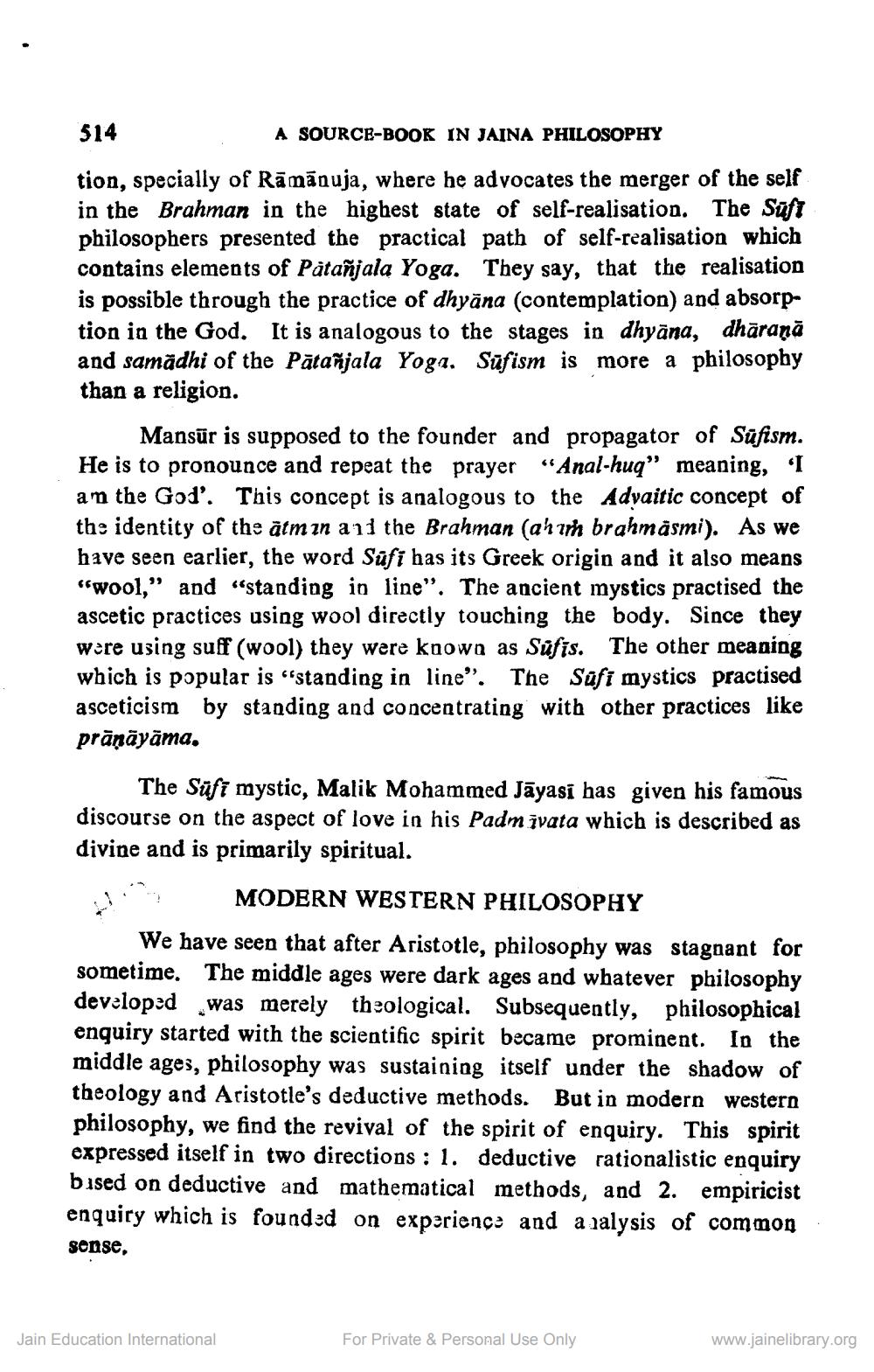________________
514
A SOURCE-BOOK IN JAINA PHILOSOPHY
tion, specially of Rāmānuja, where he advocates the merger of the self in the Brahman in the highest state of self-realisation. The Suft philosophers presented the practical path of self-realisation which contains elements of Pātañjala Yoga. They say, that the realisation is possible through the practice of dhyana (contemplation) and absorption in the God. It is analogous to the stages in dhyāna, dhāraṇā and samadhi of the Patanjala Yoga. Sufism is more a philosophy than a religion.
Mansur is supposed to the founder and propagator of Sufism. He is to pronounce and repeat the prayer "Anal-huq" meaning, 'I am the God'. This concept is analogous to the Advaitic concept of the identity of the atman and the Brahman (ahım brahmasmi). As we have seen earlier, the word Sufi has its Greek origin and it also means "wool," and "standing in line". The ancient mystics practised the ascetic practices using wool directly touching the body. Since they were using suff (wool) they were known as Sufis. The other meaning which is popular is "standing in line". The Sufi mystics practised asceticism by standing and concentrating with other practices like prāṇāyāma.
The Sufi mystic, Malik Mohammed Jayasi has given his famous discourse on the aspect of love in his Padmavata which is described as divine and is primarily spiritual.
MODERN WESTERN PHILOSOPHY
We have seen that after Aristotle, philosophy was stagnant for sometime. The middle ages were dark ages and whatever philosophy developed was merely theological. Subsequently, philosophical enquiry started with the scientific spirit became prominent. In the middle ages, philosophy was sustaining itself under the shadow of theology and Aristotle's deductive methods. But in modern western philosophy, we find the revival of the spirit of enquiry. This spirit expressed itself in two directions: 1. deductive rationalistic enquiry bised on deductive and mathematical methods, and 2. empiricist enquiry which is founded on experience and analysis of common
sense,
Jain Education International
For Private & Personal Use Only
www.jainelibrary.org




